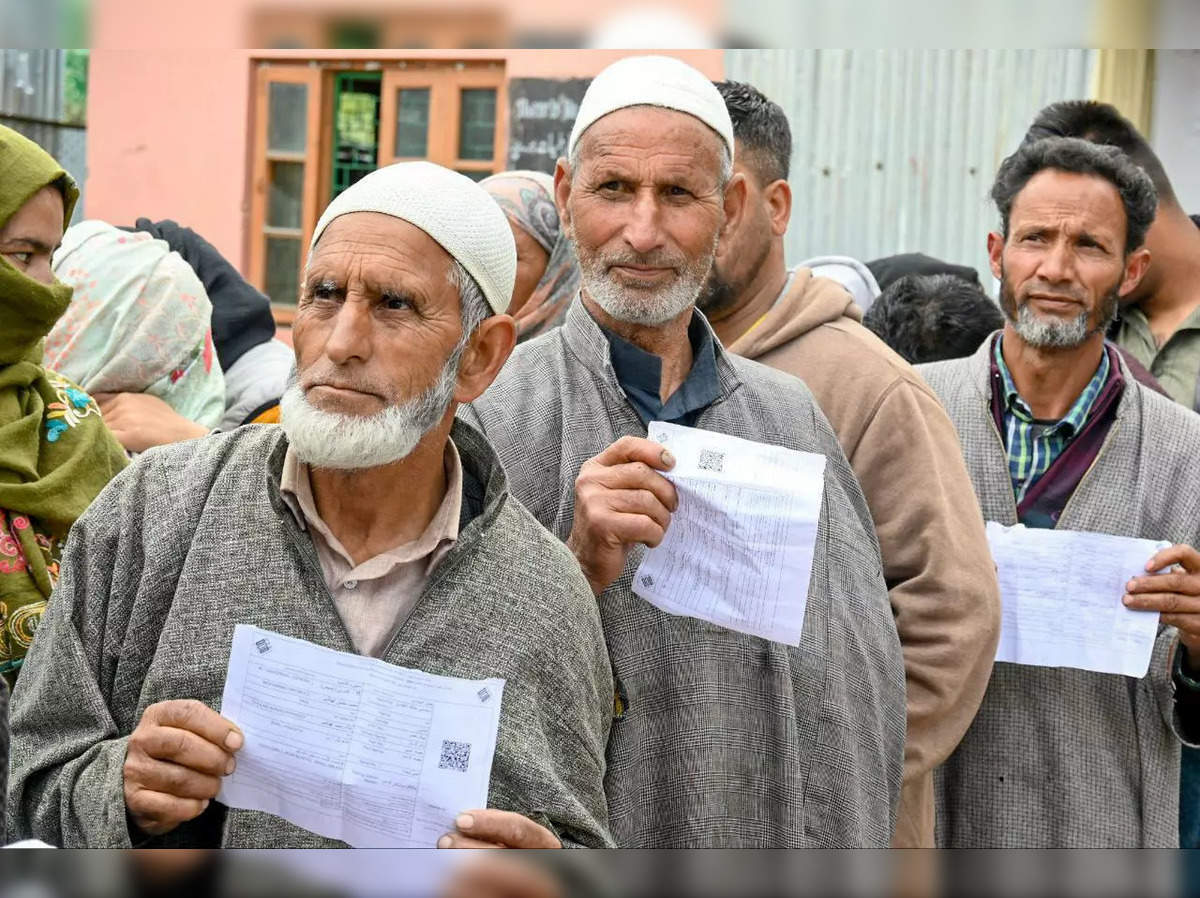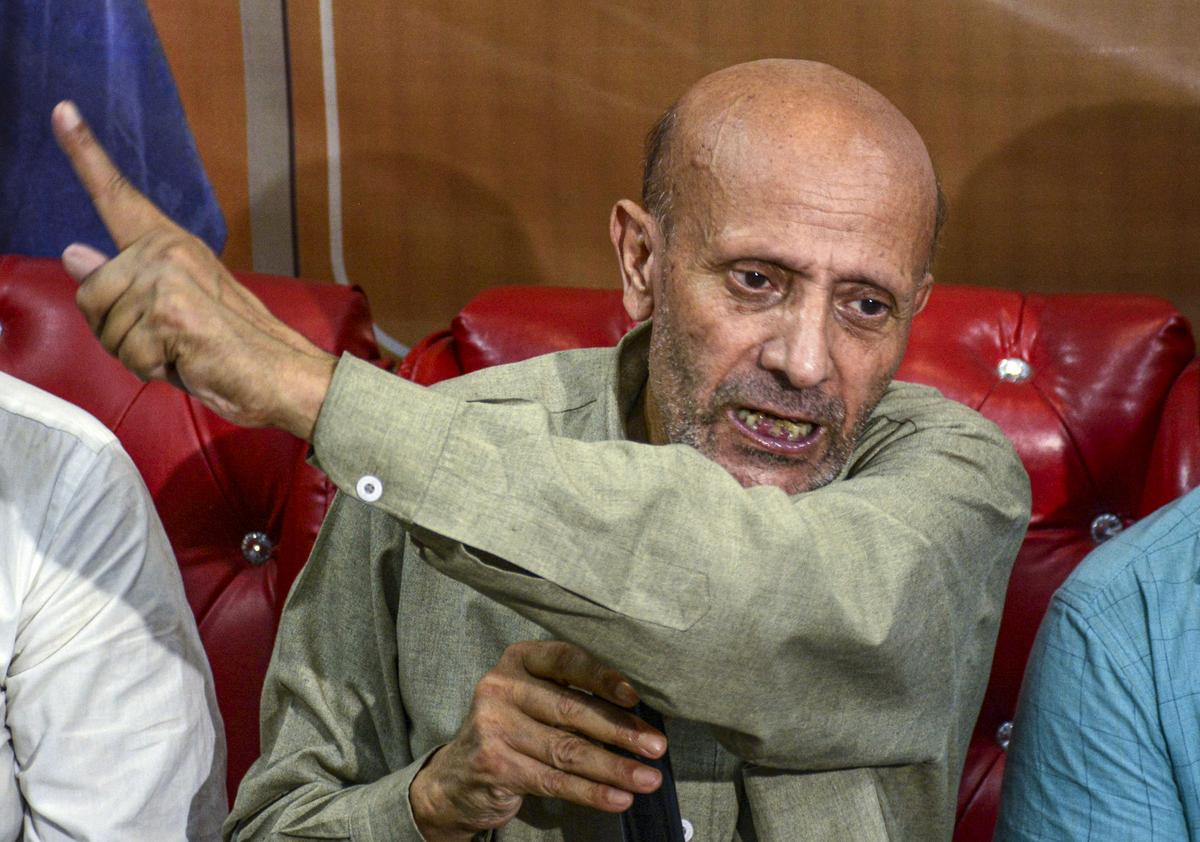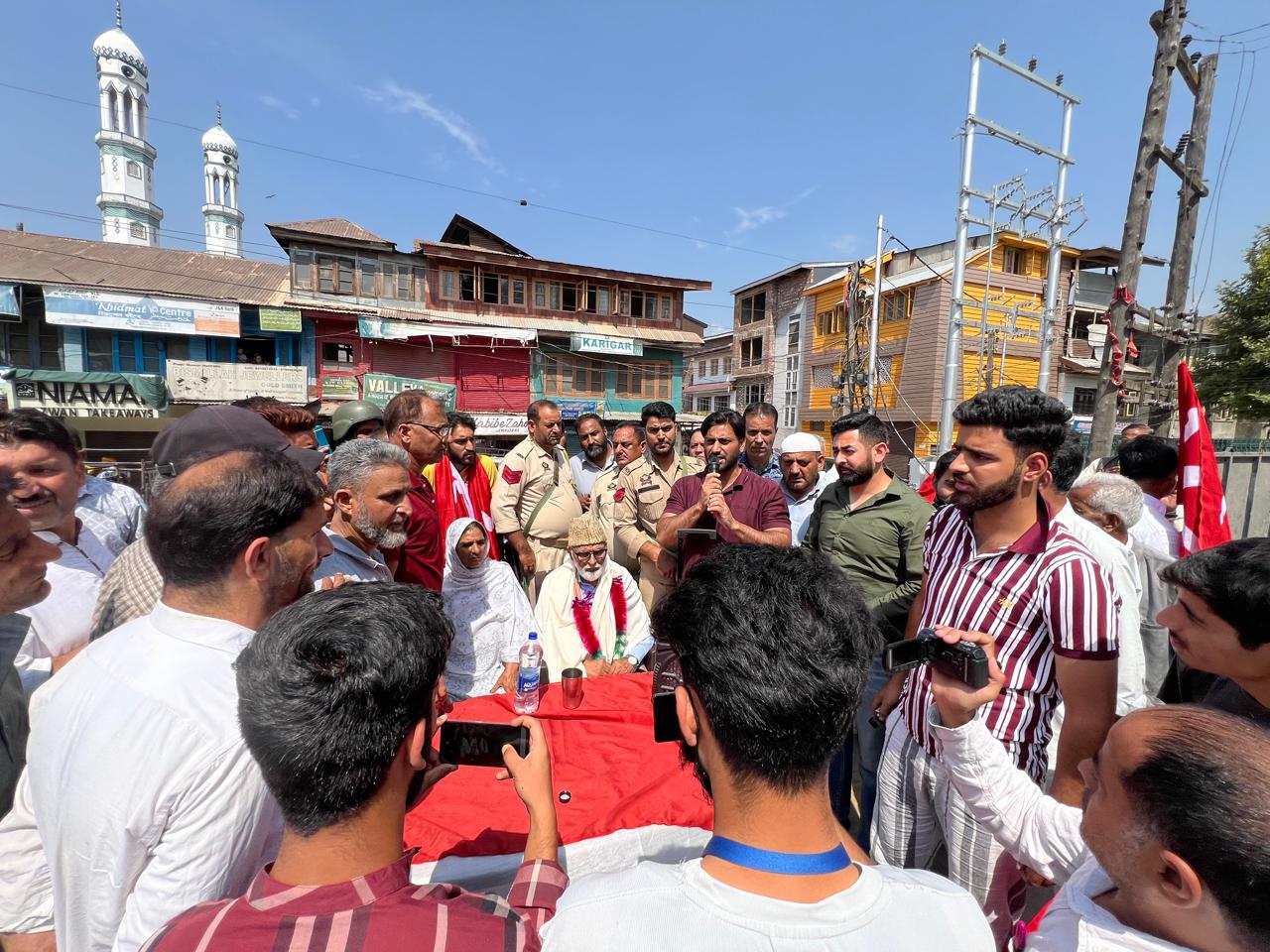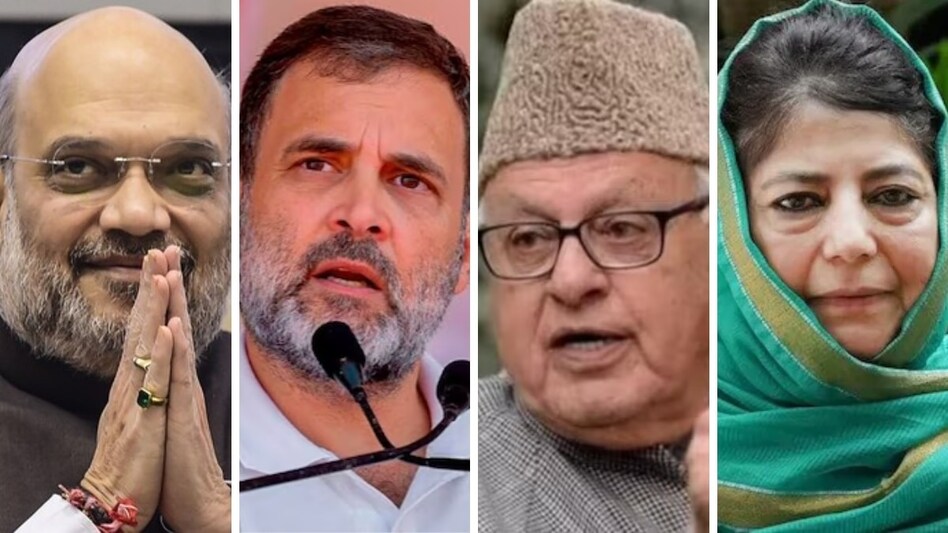Kashmir Elections, Are Separatist Candidates Real Change Makers Offering New Hope Or Have A Hidden Threat?
The Jamaat-e-Islami's decision to participate in the upcoming Kashmir elections is an acute departure from its past stance to boycott electoral processes. The move, prompted by the political repression and shrinking space in Kashmir since the 2019 crackdown, has led to a complex and divided response among the party’s supporters and the broader Kashmiri populace; however, does the participation in the first regional elections signify new hope or a hidden threat.

Kashmir Elections 2024
Indian-administered Kashmir is to host its first regional elections in a decade after New Delhi’s controversial decision in 2019 to revoke the region’s special autonomy and statehood.
An already elaborated process has been rendered more complex by a notable candidate joining the fray– each morning, before daybreak, Kaleemullah Lone ventures out campaigning house-to-house in his constituency of Langate, which is 70 kilometers (43 miles) from Srinagar, Indian-administered Jammu and Kashmir’s largest city.
Lone conducts his campaign by emphasizing solutions to long-existing problems such as pretrial detentions, inefficiency of the bureaucracy, the failing health infrastructure, and unemployment.
Notably missing from the agenda of his party, the Jamaat-e-Islami (JeI), is a long discussion with regard to the lingering Kashmir dispute, which has defined, for a long time, the political identity of this party.
The conflict, which has seen India and Pakistan both claim the entirety of Jammu and Kashmir, has led to multiple wars between the two nations.
Historically, the Jamaat-e-Islami, an Islamist social-religious organization that has opposed Indian rule, has boycotted elections, urging voters to do the same to avoid legitimizing New Delhi’s control over Kashmir.
The party has been associated with armed movements advocating for Kashmir’s separation from India and is currently banned in India under anti-terrorism laws.

A New Hope For Kashmir?
In a surprising turn, at least 10 candidates backed by the Jamaat are now competing in the elections, scheduled to take place in three phases on September 18, 25, and October 1, sparking a mix of confusion, optimism, anger, and even conspiracy theories among the electorate.
“We aim to demonstrate real democracy through our actions after the elections,” Lone stated to a media channel “By focusing on education and employment, we hope to reveal the impact of our previous absence from representing our people.”
A 37-Year Exile
The Jamaat-e-Islami last participated in elections in 1987 when it led the campaign for the state assembly under the Muslim United Front (MUF).
However, the elections, widely viewed by analysts as being manipulated by New Delhi to prevent the MUF from winning, sparked an uprising against Indian rule.
This uprising evolved into an armed rebellion, with the Hizbul Mujahideen—a local insurgent group—emerging as the Jamaat’s armed wing in 1990.
The Jamaat distanced itself from the hardline faction in November 1998.
Kashmiri analysts and political observers now state that the Jamaat’s return to electoral politics “completes a tragic circle in the region’s bloodied history,” even as its members remain divided over participating in the vote.
“Jamaat is grappling with a paradox: its leaders are being persecuted while the party is engaging in elections that legitimize Delhi’s rule,” said a senior Kashmiri political analyst.
“They risk partially undoing 37 years of political struggle aimed at resolving the Kashmir dispute.”
In August 2019, New Delhi restructured Jammu and Kashmir into two federally governed territories, revoked the region’s semi-autonomous status, and imposed a severe crackdown.
This led to the arrest of numerous opposition leaders, including mainstream politicians who supported the Indian Constitution. Since the Jamaat was last banned in March 2019 (following previous bans in 1975 and 1990), over 300 party leaders and activists have been arrested, and their properties have been raided and seized.
In an attempt to break the impasse, the Jamaat appointed a five-member panel to engage in multiple rounds of discussions with New Delhi. As the party remains banned, it is now supporting its former members to run independently in the upcoming elections.

The Paradox
Kaleemullah Lone was born a year after his father, Ghulam Qadir Lone, a member of the Jamaat’s negotiation team with New Delhi, ran unsuccessfully for the state assembly in the 1987 elections from Langate constituency in northern Kashmir.
Raised amid gunfire and police raids, the younger Lone recalls feeling “cornered and drawn into separatism.”
One of the Jamaat candidates from that election, Syed Salahuddin, later became the head of Hizbul Mujahideen and the United Jihad Council, based in Pakistan-administered Kashmir.
Another, Syed Ali Shah Geelani, led a faction of the All Parties Hurriyat Conference, advocating for either merger with Pakistan or an independent Kashmir. Geelani was seen as a prominent figure of radical resistance.
The Jamaat-e-Islami contested elections actively until 1987. Since then, the party has supported election boycotts, citing rigged processes as justification for not participating. “Given the rigged process, it was not the time to encourage voting,” Lone said.
However, the political repression following the 2019 crackdown has led the Jamaat to reconsider its stance. “The shrinking political space in Kashmir has pushed us back towards fierce democratic engagement,” Lone explained.
Following multiple rounds of negotiations between Jamaat representatives and the Hindu-majoritarian government of Prime Minister Narendra Modi, New Delhi suggested that the Jamaat should demonstrate their confidence in Indian democracy by participating in the Lok Sabha elections.
The national elections, held between April and June 2024, were largely considered free and fair, with voter turnout in Kashmir reaching levels not seen since the late 1980s.
Notably, independent candidate Abdul Rashid Sheikh, who was jailed, surprised many by defeating former Chief Minister Omar Abdullah.
The Jamaat-backed candidates are now contesting the region’s legislative elections, campaigning on a shared manifesto similar to Lone’s promises.
Noor Ahmad Baba, a retired professor from the University of Kashmir, views the Jamaat’s decision to participate as an effort to rehabilitate the party in Kashmir’s political landscape.
A political commentator who has observed the Jamaat’s evolution described the move as a “u-turn” and criticized it as “opportunistic.”

The Rashid Factor
Talat Majeed, who is running with the Jamaat’s backing in Pulwama—a hotspot of rebellion against the Indian government—hopes to replicate the success of Sheikh Abdul Rashid, also known as Engineer Rashid, who made headlines with his Lok Sabha election victory.
Rashid’s win has inspired a surge of candidates with anti-India sentiments who are currently imprisoned on various charges.
Besides former Jamaat members, Rashid’s Awami Ittehad Party has fielded candidates advocating for a “jail-free Kashmir,” vowing to challenge Indian government policies and controversial laws like the Public Safety Act and the Unlawful Activities (Prevention) Act (UAPA), under which many Kashmiris are detained.
On September 11, a New Delhi court granted Rashid interim bail until October 2, allowing him to campaign. Four days after his release, Rashid’s party announced an alliance with the Jamaat for the upcoming elections.
Another prominent figure is Sarjan Barkati, a 40-year-old cleric known for his fiery anti-India rhetoric that has drawn large crowds. Although Barkati and his wife are currently imprisoned, their daughter is leading his campaign in Ganderbal, central Kashmir—a stronghold of the Abdullah family and the National Conference (NC) party.
Regional parties like the NC and the People’s Democratic Party (PDP) have accepted the participation of these candidates. However, tensions are rising between these mainstream parties and the Jamaat and Rashid’s supporters as the election approaches.
At a rally in central Kashmir, Omar Abdullah of the NC, who lost to Rashid in the Lok Sabha election and is now contesting the regional polls, suggested that Barkati’s candidacy might be part of a broader scheme by New Delhi to influence the election.
“It’s becoming evident that Delhi has a deep-seated dislike for me,” Abdullah remarked. “Why are jailed candidates only running against me?”
Mehbooba Mufti, former chief minister and PDP leader, has refused to participate in the elections until the region’s statehood is restored. She has also accused Prime Minister Modi’s Bharatiya Janata Party (BJP) of funding Rashid’s Awami Ittehad Party to destabilize larger regional parties.
Rashid has denied these accusations, calling himself a “victim” of the BJP’s strategy.
BJP spokesperson Altaf Thakur commented that while the party respects the court’s decision to grant Rashid bail, his release is likely to have a significant impact on the Jammu and Kashmir elections. “He recently defeated Omar Abdullah, which must be troubling for Omar Sahab,” Thakur said.
Historically, the Jamaat has had limited electoral success, winning only a few seats until the 1980s. This time, their participation is expected to further fragment Kashmir’s established vote banks, according to Noor Ahmad Baba.
Many in Kashmir view this as part of a BJP strategy to weaken traditional parties in the region.
“This discussion would be different if the Jamaat had a realistic chance of winning. In reality, they might not secure even a single seat but could become a disruptive factor,” Baba noted.
However, the new alliance with Rashid’s party could potentially consolidate votes and give them a slight advantage.
The Jamaat, however, insists it is not merely a pawn in this political game. “Today, the Jamaat—and Kashmiris—have no choice but to participate in this election to reclaim our political space,” said Majeed, the Pulwama candidate.
Kaleemullah Lone agreed, acknowledging that while the Jamaat’s involvement may benefit both New Delhi and the BJP by legitimizing the electoral process, it is crucial to focus on benefiting the local population. “They may gain from it, but we need to ensure our people benefit as well,” Lone said.

Can’t Fathom It
During a rally on September 8, Jamaat-e-Islami leaders addressed a large gathering of supporters in Kulgam, south Kashmir, asserting that elections were the only viable path forward for the region.
Among the attendees was Mohammad, who requested anonymity and has been a member of the Jamaat’s youth wing for over a decade. At 35, Mohammad has long admired the Jamaat for its advocacy of Kashmiri interests. However, he found the rally unsettling.
“I couldn’t find my friends or other members of the youth wing at the rally,” he stated. “The youth wing has not supported this decision. Yet, no one is willing to voice their resistance out of fear of becoming targets of the security forces for opposing Indian elections.”
Mohammad has never voted in any election. Although Majeed is contesting from Mohammad’s constituency, the youth activist struggles to reconcile himself with the idea of voting.
A few minutes into the rally, Mohammad left, saying, “Jo dekh rahe hai, woh bardasht nahi ho paa raha hai” (“I couldn’t tolerate what I was seeing”). He added, “Our leaders might believe this decision is necessary for the party’s survival, but my heart doesn’t agree.”
He is not alone in his discomfort. Among Jamaat activists, there is a significant divide over the party’s decision, reflecting differing perspectives.
In downtown Srinagar, where the Jamaat has not endorsed any candidate, Asif is closely following the election.
At 29, he was actively involved in student protests in 2017 and spent time in jail, while two of his friends joined the Hizbul Mujahideen armed group. Despite his past stance, he plans to vote on September 18.
“We need to reconsider our strategy to resist occupation, express ourselves, and defend our identity,” Asif explained. “These are desperate times. Sometimes, not voting is part of the strategy, but at other times, voting might be the last option to reclaim our rights.”

The Viewpoint
The Jamaat-e-Islami’s participation in the upcoming elections represents a significant shift from its historic stance of boycotting electoral processes.
This move, prompted by the political repression and shrinking space in Kashmir since the 2019 crackdown, has led to a complex and divided response among the party’s supporters and the broader Kashmiri populace.
While some, like Talat Majeed and Asif, view the elections as a necessary step to reclaim political space and address pressing local issues, others, like Mohammad, struggle with the perceived legitimacy of participating in a system they see as flawed and repressive.
The rallying of former Jamaat members and the alliance with Sheikh Abdul Rashid’s Awami Ittehad Party spotlights the evolving political dynamics and the desperation to find effective means of resistance and representation.
The Jamaat’s new approach to electoral politics, amid a backdrop of longstanding conflict and shifting allegiances, could either signify new hope or perhaps a trojan horse.




